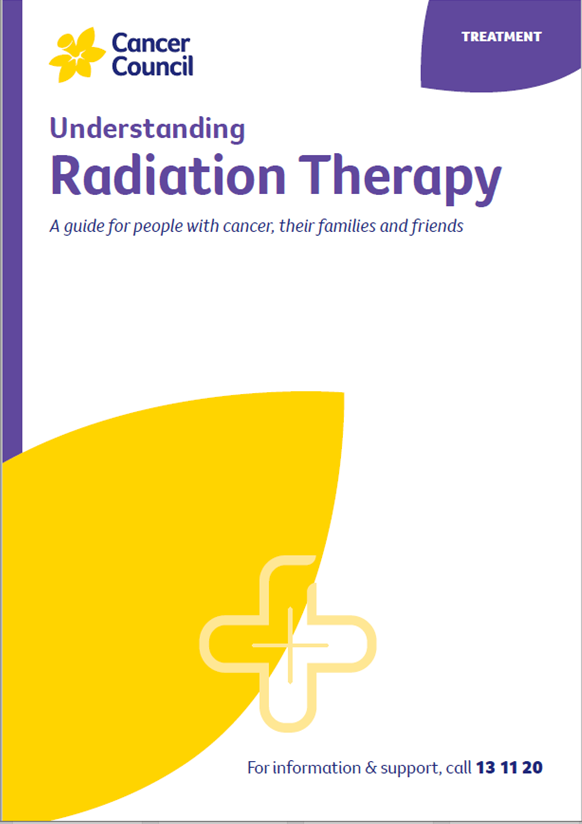- Home
- About Cancer
- Cancer treatment
- Radiation therapy
- Brachytherapy
- Other types of internal radiation therapy
Other types of internal radiation therapy
For some cancers, you may be referred to a nuclear medicine specialist to have another type of internal radiation therapy.
Learn more about:
Radionuclide therapy
Also known as radioisotope therapy, this involves radioactive material being swallowed as a capsule or liquid, or given by injection. The material spreads throughout the body, but particularly targets cancer cells. It delivers high doses of radiation to kill cancer cells with minimal damage to normal tissues.
Different radionuclides are used to treat different cancers. The most common radionuclide therapy is radioactive iodine, which is swallowed as a capsule and used to treat certain types of thyroid cancer.
Other radionuclide therapies include:
- peptide receptor radionuclide therapy (PRRT), used to treat neuroendocrine tumours (NETs) of the bowel, pancreas and lung
- lutetium prostate specific membrane antigen (PSMA) therapy, used to treat some advanced prostate cancers
- I‑MIBG therapy, used to treat some types of NETs or neuroblastoma
- bone‑seeking radioactive liquid, used to target cancer that has spread to the bone
- radioactive antibodies, used to treat lymphoma.
Radionuclide therapies may be available only in certain specialised treatment centres in each state and some may be available only on clinical trials or at a considerable out‑of‑pocket cost. Talk to your doctors for more information.
SIRT
This stands for selective internal radiation therapy. It is also known as radioembolisation. SIRT uses tiny radioactive beads to deliver high doses of radiation to the liver. The beads are injected into a thin tube called a catheter, which is inserted into the main artery that supplies blood to the liver.
Radiation from the beads damages the cancer cells and their blood supply. This means the cancer can’t get the nutrients it needs and it shrinks. For more on this, see Liver cancer.
→ READ MORE: Managing radiation therapy side effects
Podcast: Making Treatment Decisions
Listen to more episodes from our podcast for people affected by cancer
More resources
A/Prof Susan Carroll, Senior Staff Specialist, Radiation Oncology, Royal North Shore Hospital, and The University of Sydney, NSW; Katie Benton, Advanced Dietitian Oncology, Sunshine Coast Hospital and Health Service, QLD; Adrian Gibbs, Director of Physics, Radiation Oncology, Princess Alexandra Hospital Raymond Terrace, QLD; Sinead Hanley, Consumer; Dr Annie Ho, Radiation Oncologist, GenesisCare, Macquarie University Hospital and St Vincent’s Hospital, NSW; Angelo Katsilis, Clinical Manager Radiation Therapist, Department of Radiation Oncology, Royal Adelaide Hospital, SA; Candice Kwet-On, 13 11 20 Consultant, Cancer Council Victoria; Jasmine Nguyen, Radiation Therapist, GenesisCare Hollywood, WA; Graham Rees, Consumer; Nicole Shackleton, Radiation Therapist, GenesisCare Murdoch, WA; Dr Tom Shakespeare, Director, Cancer Services, Mid North Coast Local Health District, NSW; Gabrielle Vigar, Nurse Lead, Cancer Program, Royal Adelaide Hospital and Queen Elizabeth Hospital, SA.
View the Cancer Council NSW editorial policy.
View all publications or call 13 11 20 for free printed copies.

